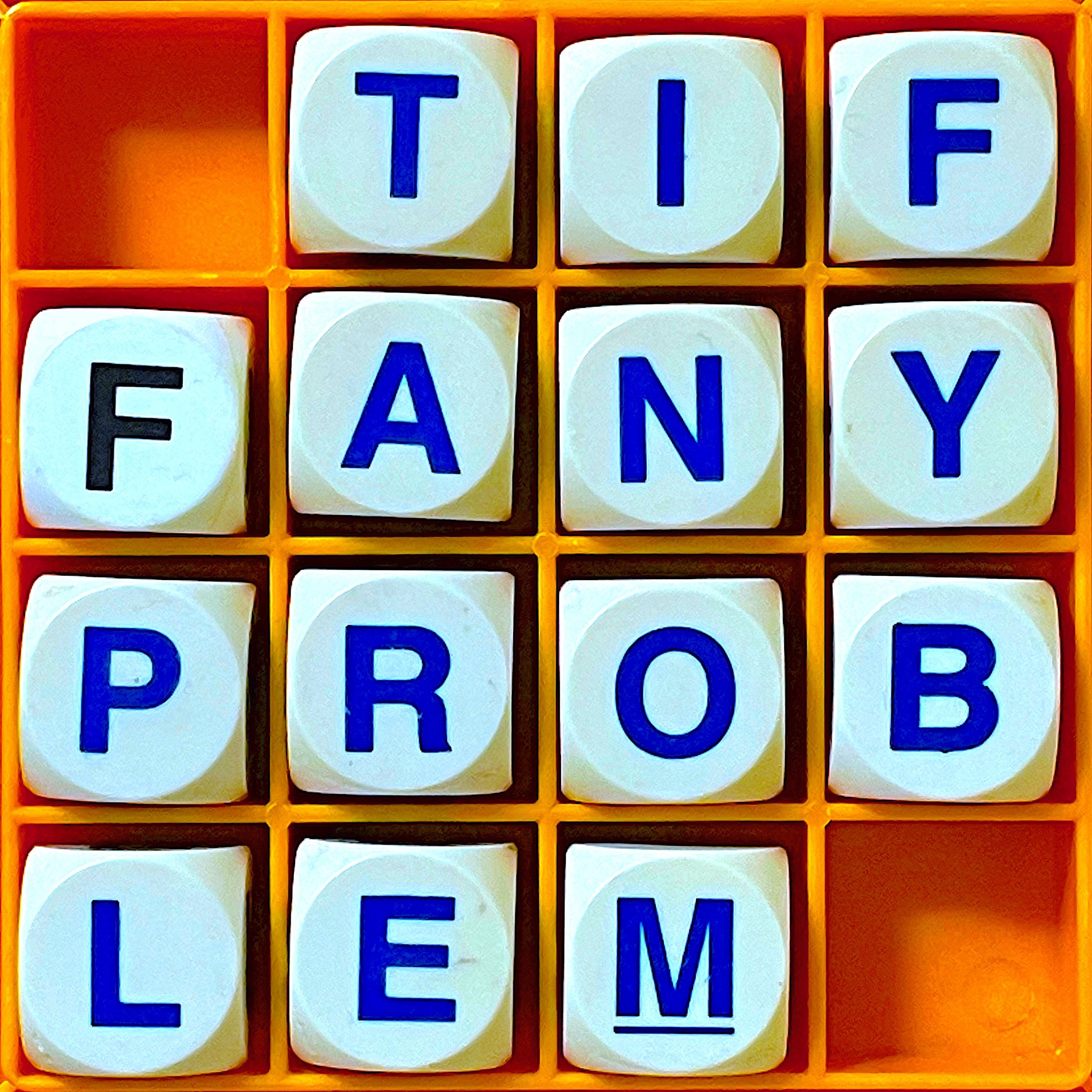Since 2019, Marwan Kaabour has been collecting Arabic slang words used by and about queer people, first for the online community Takweer, and now the newly published Queer Arab Glossary. "When researching for this book, I discovered so much of the sociopolitical, cultural, linguistic, and historical layers that make up the words," he says. He also discovered quite a lot about frying, white beans and worms (metaphorical ones).
Read moreAllusionist 174. Eurovision part 1
There aren't many multilingual, multinational television shows that have been running for nearly seven decades. But what makes the Eurovision Song Contest so special to me is not the music, or the dancing, or the costumes that range from spangletastic to tear-off: no, it's the people butting heads about language. Historian Dean Vuletic, author of Postwar Europe and the Eurovision Song Contest, recounts the many changes in Eurovision's language rules, and its language hopes and dreams.
Read moreAllusionist 155. The Tiffany Problem
The name Tiffany has been around for some 800 years. But you can't name a character in a historical novel 'Tiffany', because people don't believe the name is old. Science fiction and fantasy author Jo Walton coined the term "The Tiffany Problem" to express the disparity between historical facts and the common perception of the past.
Read moreAllusionist 131. Podlingual
In their podcasts Mija and Moonface, Lory Martinez and James Kim create autobiographical fiction in multiple languages.
Read moreAllusionist 118. Survival: Bequest
When the Europeans arrived in Aotearoa New Zealand, as well as guns, stoats and Christianity, they brought ideas of cisgender monogamous heterosexuality that were imposed upon the Māori people as if there had never been anything else. But one word, takatāpui, proved otherwise.
Read moreAllusionist 92. To Err is Human
If you wince when you hear someone say “a whole nother level”, “hone in on” or “right from the gecko”, here’s some bad news: you might have to get used to it. The English language is full of words and expressions that were mistakes that stuck around. Countdown’s Susie Dent holds our hands and takes us on a tour of misspellings, mishearings, scrambled letters, and bear cubs.
Read moreAllusionist 53: The Away Team
"Recognizing someone's humanity is crucial. Calling someone a migrant, calling someone an asylum seeker, calling them a refugee: these are official categories. But in many ways, depending on how they use them, they can change and become more negative."
So says propaganda and migration specialist Emma Briant, explaining the dangers of conflating and misusing the terms that apply to humans on the move. And British-Asian-but-kinda-not author Nikesh Shukla wonders where he's from - where he is really from.
Read moreAllusionist 33: Please
iTUNES • RSS • MP3
There's an ocean between Britain and the USA, but an even wider division between each country's use of a particular word: 'please'.
Linguists Lynne Murphy and Rachele De Felice explain how one nation's obsequiousness is another nation's obnoxiousness.
PLEASE, READ MORE ABOUT IT:
Lynne Murphy’s blog is Separated By A Common Language. She has written about ‘please’ and ‘please’ in restaurants.
Anthropologist David Graeber considers the reciprocity in using these niceties.
This claims to be a history of etiquette, but is mainly about forks. Get the forks right, and the rest follows (or so the fork tyrants would have you believe).
Emily Post may have died in 1960, but she’s still looking out for your manners. Keeping the Post flag politely flying, her great-great-grandchildren host the Awesome Etiquette podcast.
There's a transcript of this episode at theallusionist.org/transcripts/please.
RANDOMLY SELECTED WORD FROM THE DICTIONARY:
linstock
CREDITS:
Lynne Murphy's blog is separatedbyacommonlanguage.blogspot.com and she is @lynneguist on Twitter. Rachele De Felice is @racagain on Twitter. If you're interested in linguistics, follow them!
This episode was produced by me, Helen Zaltzman, with music by Martin Austwick.
Please find me at facebook.com/allusionistshow, twitter.com/allusionistshow and twitter.com/helenzaltzman.
Please come back for another episode in two weeks.
- HZ
Allusionist 18: Fix part II
iTUNES • RSS • MP3
The messiness of English is the price of its success. It is the most widely spoken language in the world, geographically, being an official language in 88 different countries, and there are countless different versions of it all over the world. With so many speakers in so many places, it would be impossible to establish a single 'correct' form of English; and, as became evident in Fix part I, to try to do so is a losing game.
In Europe, a new strain of English is emerging. It's not spoken very widely, but it is used by some of the most powerful people in the world. Hampton and Michael Catlin, founders of the collaborative online dictionary Wordset, lead us into this linguistic netherworld.
Beware: excessive suffixes.
READING MATTER:
Who WOULDN'T want to read the European Court of Auditors' 66-page 2013 report Misused Words and Expressions in EU Publications? Curl up on the sofa and prepare to discover bold new uses for 'homogenise', 'mission' and 'jury'.
The history of musical notation, do re mi - née ut re mi - is interesting; read more about it here.
If you're infuriated by someone who muddles up words like 'gamut' and 'gamete', you could direct them to diffen.com or the-difference-between.com.
The transcript of today's show is here.
The Guardian interviewed me about the Allusionist and Answer Me This; take a look here (if just for the accompanying photo).
RANDOMLY SELECTED WORD FROM THE DICTIONARY:
gleet
CREDITS:
Hampton and Michael Catlin founded Wordset, the online collaborative dictionary that aims to collect every different form of English. You can help out at wordset.org. You can also hear the Catlins on their podcast, We Have A Microphone.
This episode was produced by me, Helen Zaltzman. Thanks to Matthew Crosby for his vocal contributions. The music is by Martin Austwick. Hear and/or download more - WITH LYRICS! - at thesoundoftheladies.bandcamp.com.
Say hello to me at facebook.com/allusionistshow, twitter.com/allusionistshow and twitter.com/helenzaltzman.
The next episode will appear in a fortnight. Thank you for your actorness in listening.
- HZ
Allusionist 17: Fix part I
iTUNES • RSS • MP3
The English language is a mess. And if you don't like it, what are you going to do about it - fix it? Good luck with that.
In the early 18th century, a movement of grammarians and authors wanted to set up an official authority to regulate English, like French had in the Academie Francaise. But is trying to fix a language a good move? Linguists Liv Walsh and Thomas Godard weigh up the evidence.
Apologies in advance, pedants: this episode may contain some truths you* don't want to hear.
*we.
READING MATTER:
Some of the audio is a bit unclear, so here's a transcript of the show.
Find out about the Academie Francaise, including what you'll need to do if you want to become one of Les Immortels. (You'll probably have to kill one of the current ones.)
Here is Jonathan Swift’s language proposal and here is his Modest Proposal.
This article summarises how most linguistic rules are just busking it; it also links to a 1909 paper about the subject that doesn't mess around.
Thomas Godard recommends reading Fixing English by Anne Curzan and The Bishop's Grammar by Ingrid Tieken-Boon van Ostade, and listening to PRI's The World in Words.
The purists among you may wish to seek refuge with the Queen's English Society.
RANDOMLY SELECTED WORD FROM THE DICTIONARY:
toxophilite
CREDITS:
Thanks very much to Dr Liv Walsh and Thomas Godard, and to Dr Rachele De Felice who helped me find them.
This episode was produced by me, Helen Zaltzman. All the music is by Martin Austwick. Hear and/or download more - WITH LYRICS! - at thesoundoftheladies.bandcamp.com.
Say hello to me at facebook.com/allusionistshow, twitter.com/allusionistshow and twitter.com/helenzaltzman.













